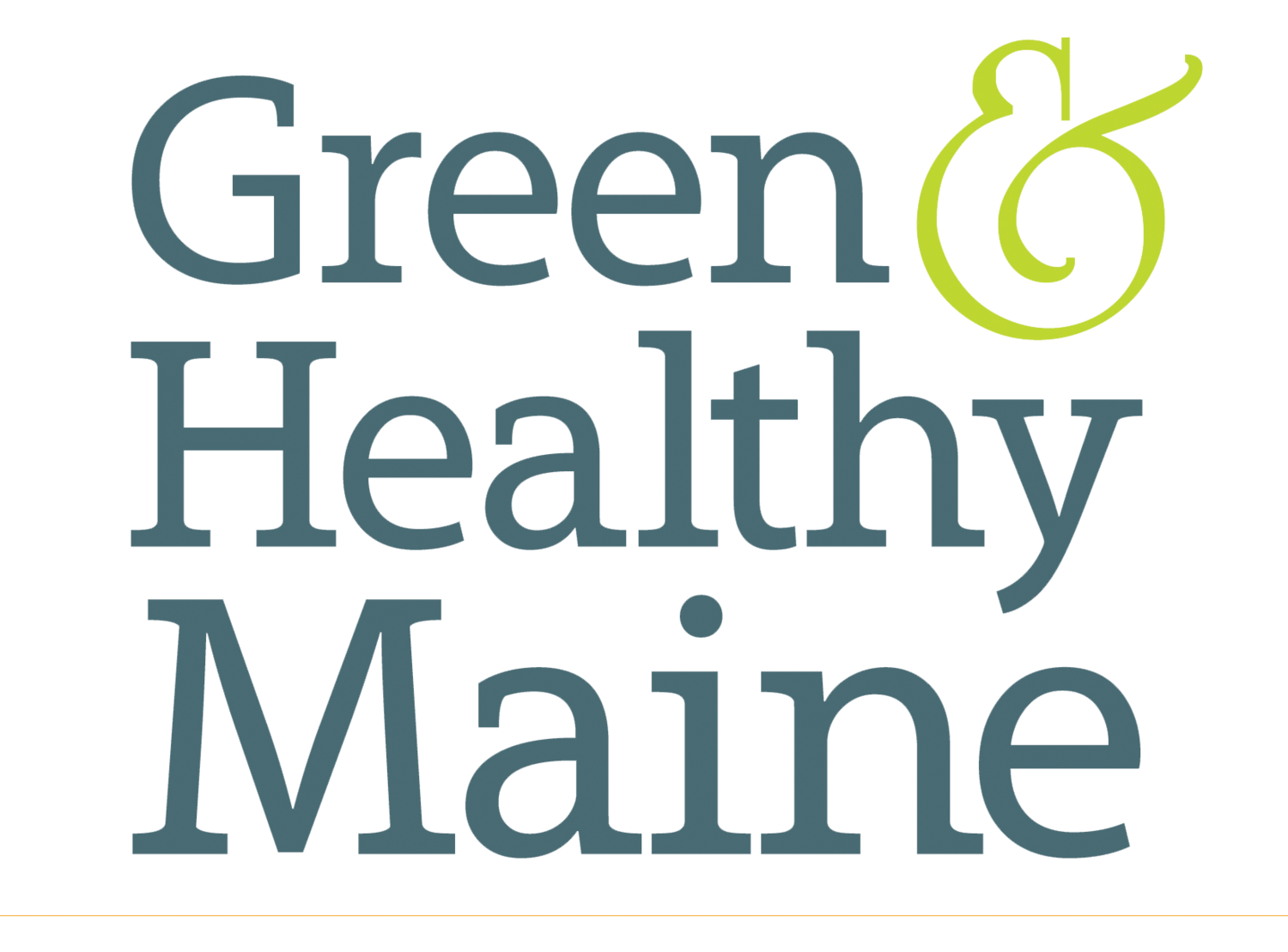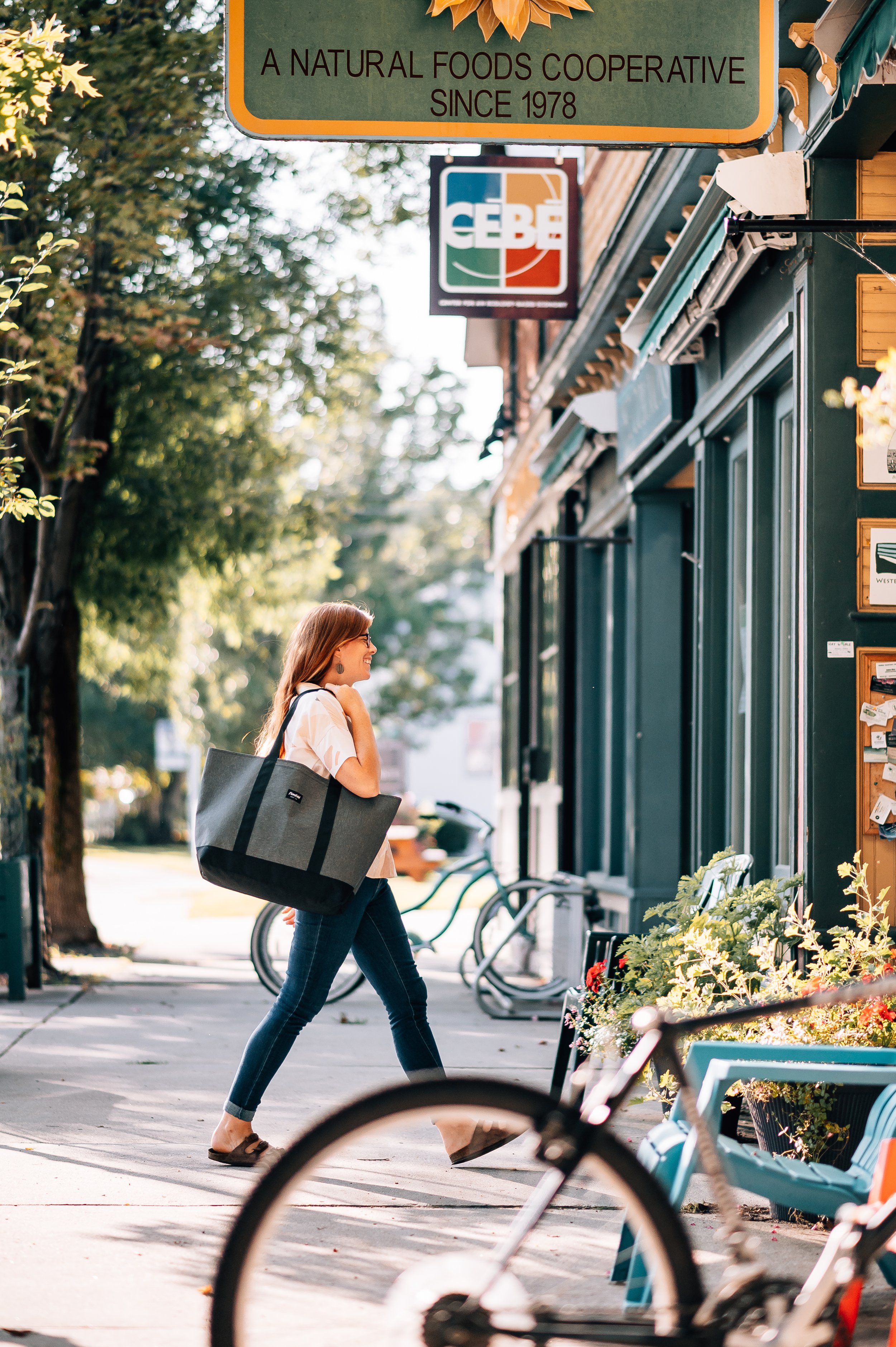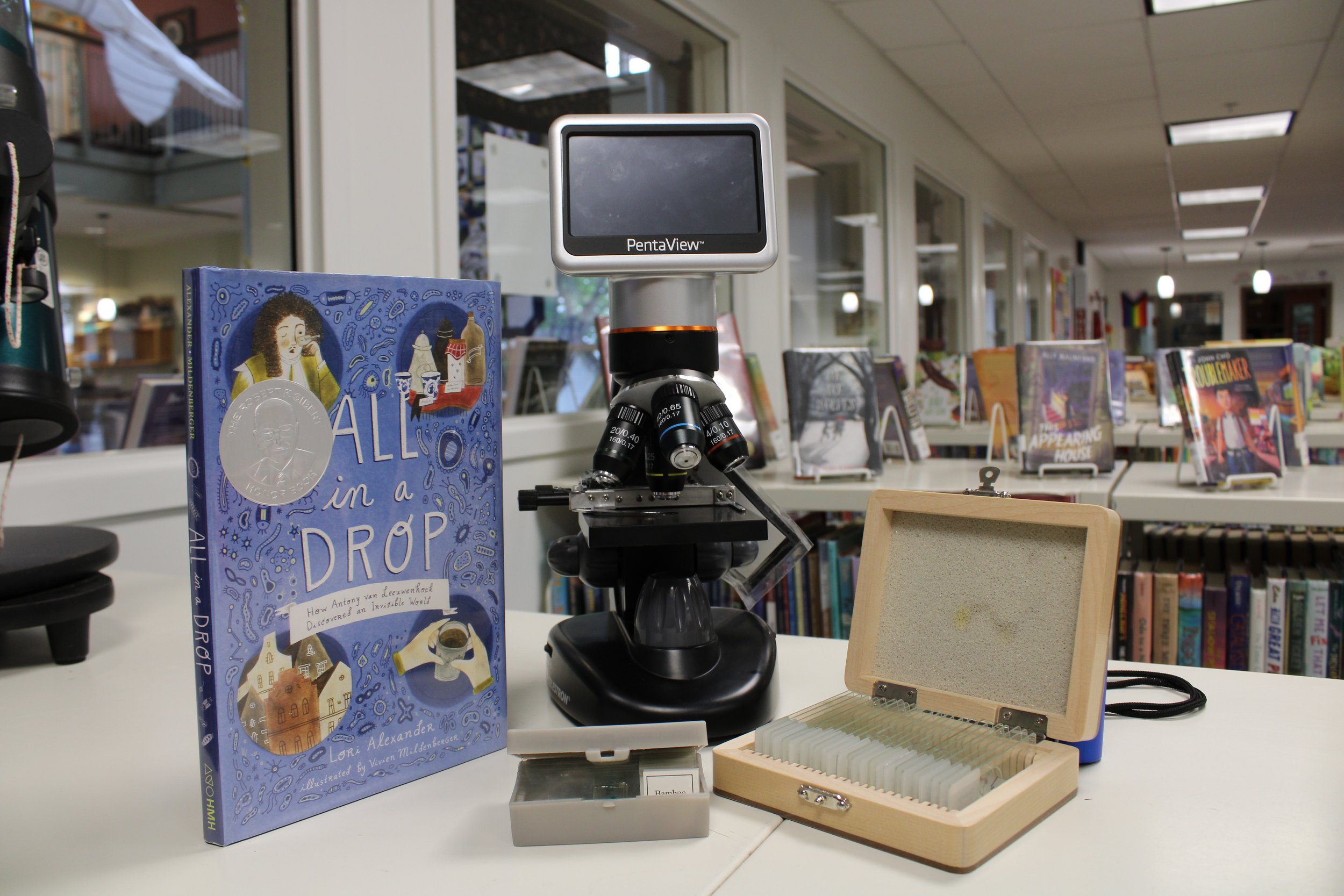28 ways to be a more conscientious consumer
Downtown Norway, Maine. PHOTO: CAIT BOURGAULT
Buying less, and buying with the earth in mind, is a great way to exercise “power of the purse” and lighten your environmental impact. Here are some ideas to help you be a more conscientious consumer:
Support local & ethical businesses
1. Buy local! Portland Buy Local’s directory is a great resource if you live in greater Portland. If not, look for a “buy local” organization near you, or check your local Chamber of Commerce.
2. Maine.coop is a great resource for finding community-centric cooperative owned and operated businesses and organizations in Maine.
3. Shop B-Corps: B-Corp certified businesses meet a stringent set of sustainability standards. For a list of B Corps companies in Maine, visit bcorporation.net
4. Look for the 1% for the Planet business designation: member businesses donate 1% of their gross sales annually to environmental nonprofits, regardless of whether or not they have made a profit. Green & Healthy Maine is a 1% for the Planet member, and so are many other Maine businesses!
5. Look for the Environmental Leader seal in Maine’s restaurants, lodging facilities and grocer stores. Learn more at maine.gov
6. Bring your own container to a refill store to stock up on soaps, cleaners and other household products minus the plastic packaging. Refill stores in Maine include GoGo Refill (South Portland and Brunswick), We Fill Good (Kittery) and The Green Store (Belfast). For spices, grains, legumes and more food items, check out the bulk section of your local food co-op or natural foods store.
Build community
7. Use the library! Save money and resources by checking out books, music and DVDs. You can borrow more than media, too: Maine Libraries of Things lend out anything from musical instruments to museum passes.
8. Get to know your neighbors. Not only will you build community and make new friends, you will also be able to pool resources.
9. Check out/join Portland’s Hour Exchange to trade services and goods you have for services/goods you need.
Wide-eyed,budding biologists can check out a microscope, slides and book kit from the Skidompha Public Library in Damariscotta. COURTESY PHOTO.
Choose sustainable and non-toxic products
10. Consider making your own household cleaners with ingredients like lemon juice, vinegar, salt and baking soda.
11. The Environmental Working Group traces toxins in food, home goods and beauty products and provides shopping guides to help you make safe choices. Find their resources at ewg.org
12. When toy shopping, check for the ASTM label, indicating that the American Society for Testing and Materials has found that the toy meets national safety standards and does not contain toxic chemicals.
13. Find safe personal care products at safecosmentics.org or the Environmental Working Groups’ “Skin Deep” page.
14. Seek a salon that uses non-toxic and chemical-free products.
15. Avoid petrochemicals in your clothing by using a “wet cleaner” instead of a dry cleaner.
16. Find recommendations for the most sustainable electronics, including computers, phones, tvs and more with the EPEAT® Registry.
Clothing: less is more
17. Set up clothing swaps with friends when you need a wardrobe refresh, and get to know your second-hand, pre-loved and consignment stores. From clothing to sporting goods to building supplies, Maine has great local resources for shopping gently used goods.
18. Find outdoor gear and apparel at Portland Gear Hub—you’ll get great gently used goods and support Ketcha Outdoors, an outdoor youth organization.
19. Despite the higher initial costs, better quality clothing will save you money in the long run. When you put more into your clothes, you get more back as well. Learn more at thesunriseguide.com/rethinking-fashion.
20. Look for organic cotton to wear just like you look for organic produce to eat—and for the same reasons.
21. Wear (local) wool. It’s all natural, biodegradable, renewable and recyclable, and as a non-petroleum based fabric, there are no toxic gasses emitted in its production or as it breaks down.
22. Have your clothing repaired instead of replacing it. Find a trusty tailor in your area, learn to do it yourself, or find a repair cafe pop up near you: at these free events, skilled volunteers help repair everyday objects. Think coffee makers, computers, bicycles, clothing—and more.
Did you know?
Did you know? Cotton crops cover 2.4% of the world’s cultivated land but use 6% of the world’s pesticides, more than any other single major crop.
(aboutorganiccotton.com)
Be a responsible pet owner
23. Considering a pet? Adopt from a shelter rather than purchasing from a pet shop or breeder.
24. Look for natural pet foods and products to avoid supporting the factory farming and chemical industries you avoid when making purchases for yourself.
25. Find a holistic veterinarian near you at ahvma.org
And more…
26. Think outside the (gift) box: Give a donation to an environmental cause, make a craft, offer an experience like theater tickets, cook a meal…what would your special someone like that is not an object purchased in a store?
27. Planning a wedding or baby shower? Consider an alternative registry like sokindregistry.org or changingthepresent.org
28. Buying into the stock market? Consider Socially Responsible Investing. Check out Green America for resources and to learn more.
Happy, healthy, sustainable. Subscribe to Green & Healthy Maine magazine!
Green & Healthy Maine is published by TheSunriseGuide, LLC. This article originally ran in the 2020 SunriseGuide.





